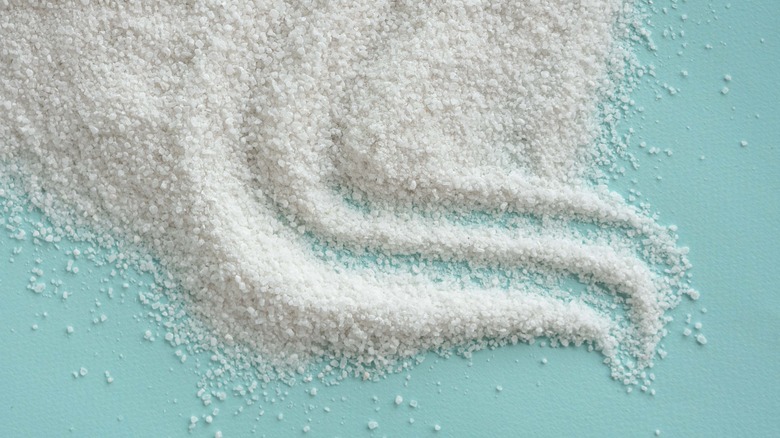What Does Chloride Do For Your Body?
Our body relies on nutrients in the form of vitamins and minerals to help it perform at its best. It's not uncommon for people to be mindful of their vitamin intake and put minerals on the back burner, but minerals are just as necessary — and which ones we should give more attention to can change based on several factors including age and diet. While vitamins are found in plants and animals, minerals are found in soil and rock. Typically, you can get an ample supply of these nutrients from the foods you eat and they're also available in supplements such as pills and gummies.
According to the National Center for Complementary and Integrative Health, there are many minerals that are vital for good health. These include calcium, phosphorus, potassium, sodium, chloride, magnesium, iron, zinc, iodine, sulfur, cobalt, copper, fluoride, manganese, and selenium. Chloride is one of the minerals that may not be top of mind. Fortunately, Very Well Fit says it's easily accessible so deficiencies are uncommon.
Getting the right amount of chloride
Alongside sodium and potassium, chloride helps the body maintain healthy fluid levels, per Very Well Fit. In the form of sodium chloride, it plays a critical role in absorbing and transporting nutrients, transmitting nerve signals, as well as contracting and relaxing muscles, according to Healthline. Chloride is commonly found in table salt, sea salt, salt substitutes, celery, tomatoes, lettuce, and seaweed.
Very Well Fit adds that how much chloride a person should consume is based on age and can range from 1.5 grams daily for toddlers 1 to 3 years of age to 2.3 grams for people between 9 and 50 years of age. After turning 51, the amount of chloride someone should receive begins to decline down to as low as 1.8 grams per day.
Because of how much chloride food and salt carries, taking a chloride supplement is likely unnecessary. In fact, too much chloride can cause high blood pressure and can also be dangerous for people with cirrhosis, kidney disease, or congestive heart failure, warns the National Library of Medicine.


